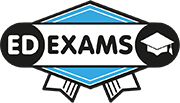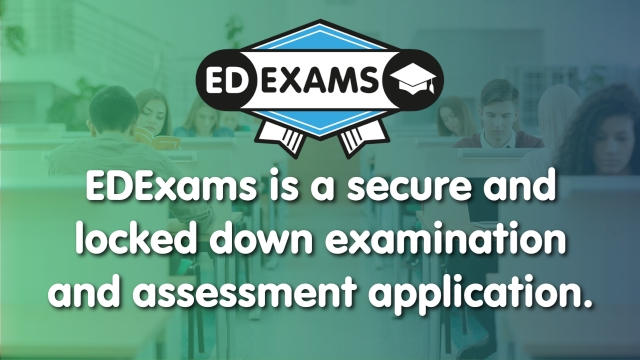In 2013, David Hanson of the Independent Association of Prep Schools explained that, within a decade, he expected schools to make the shift to online exams.
He was backed up by the president of Pearson UK, who said that the Edexcel board were already delivering ‘nearly 900,000 online-based tests in schools and colleges’.
There is no doubt that technology is already permeating the world of exams and will continue to do so in the years ahead. However, this raises the question of which type of exams are best for students.
While there are many pros to moving to online exams (reduced paper, time and money savings for schools), what are the benefits for students?
Online exams
Pupils have grown up surrounded by technology and use it far more than previous generations. This has moved into the classroom with teachers making use of modern teaching methods such as VR and AR to enhance their students’ learning.
This means that this generation of pupils are more used to technology in their education and using it in exams seems the next logical step. In fact, many students might be uncomfortable with the idea of paper tests when so much of their learning has utilised technology.
It could be the educational equivalent of asking them to start a fire with twigs when they’ve always used matches previously.
Online exams can feel more accessible to students. They may also have the perception of being fairer because they appear more standardised and the marking is therefore standardised too.
Digital technology is already used by exam boards, for instance, to separate responses out for individual questions to speed up the marking process.
Rod Bristow, the president of Pearson UK commented that:
This has made the assessment process quicker, more secure and most crucially, fairer for learners, with no single examiner marking an entire paper.
The perception of improved fairness, then, may already have been demonstrated in the marking process and this could be replicated in the use of technology for assessment purposes.
There are, however, technological hurdles to overcome if online exams are to work effectively across the country.
For example, some schools don’t have the same level of broadband and technical equipment as others. Rural schools may not have the same capacity as inner-city schools, leading to discrepancies in the availability of online exams.
This could then lead to students who are technologically able feeling short-changed by the lack of options for them. There’s also the possibility that some pupils may not be technologically competent, and the system could adversely penalise them.
Paper exams
Paper exams remain the norm for complex subjects, although the capacity for shifts to computer-based testing is still widely discussed.
One benefit is that they are reliant on systems that have been proven to work for many years. This offers a level of security to students who know that the processes have been developed and utilised for generations.
There is less chance of papers being lost (although this still occurs) and a reduced fear of technical glitches causing issues with the examination. Equally, taking paper exams in a traditional setting can feel more like an exam and therefore the importance of it is reiterated to pupils.
In the same way that some students may struggle with technology, though, it’s also the case that some pupils may be completely unused to writing for long periods of time. This may mean that they can’t complete questions sufficiently and struggle to attain the grades they deserve.
In addition, legibility is required for papers to be effectively marked, and this is something that many students struggle with.
Online vs. Paper
As things stand, technology for bringing computer-based testing into schools comprehensively is still in the future, and the efficacy of them is still up for debate.
A 2016 American study on the different scores attained within online testing and paper testing concluded that the more effective method is the one that students are proficient with:
So, method of testing makes a difference in the following ways: if students are not adept at taking a test on a computer, they score higher on the same paper-and-pencil test. If they are adept with a computer, they score higher on the computer test.
It seems, then, that the progress of online exams depends as much on the progress of computer literacy and confidence as it does on the development of onscreen exam technology.
Of course, at EDExams, we firmly believe in the future of online exams and marking. As more children grow up in the digital age, a shift to online exams will eventually happen and our platform can already be used to deliver the full examination process from mock exams to marking and grading.
Discover how EDExams can help you introduce online exams in your setting.











